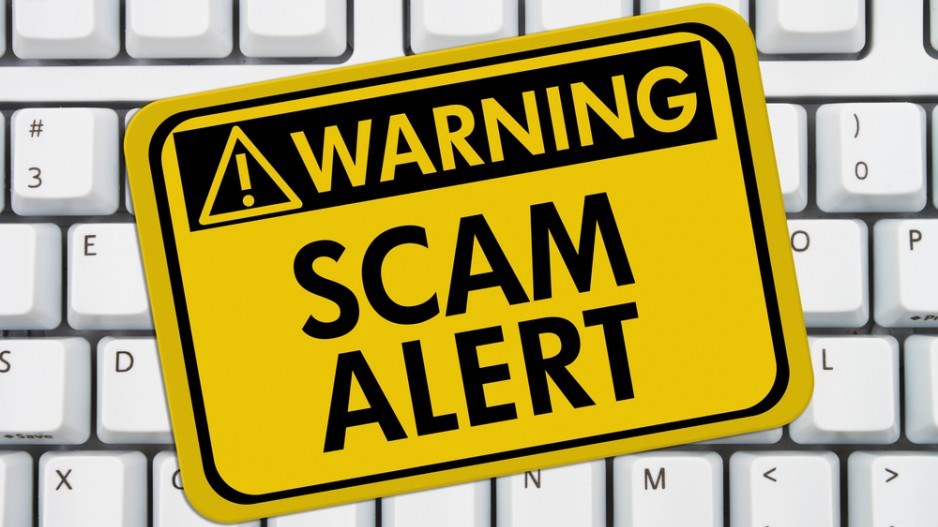Have you been a victim? Maybe without even knowing?
The amount of money Canadians lost due to scams grew more than 30% in 2014 to about $70 million, according to the Canadian Anti-Fraud Centre. One huge reason for a lot of this growth, according to the Better Business Bureau of British Columbia (BBB B.C.), is an increasing reliance on technology.
“[The digital world] is a space that is easier for hackers and fraudsters to set up shop, and they are getting very good at deception,” BBB B.C. said in a release.
“It is easy for these crooks to replicate trusted brands and hit as many potential victims as possible all at once.”
One of the ways scammers are able to cause damage is by hacking IT security firewalls, allowing them to steal personal data. As well, many scams are perpetrated by establishing a sense of trust with victims. An example of this is stealing money through Ponzi schemes.
According to the bureau the top 10 scams in 2014 were:
1. Top auto scam: automotive online pricing
Sellers can often misrepresent the vehicles being sold, and if buyers don’t get cars inspected or check their histories and values, they can end up overpaying.
2. Top emotional scam: disaster charity scam
Websites that purport to raise money for disaster relief often turn out to be fraudulent. BBB B.C. recommends that people donate to familiar organizations.
3. Top identity theft: remote computer repair
This scam involves somebody phoning and pretending to represent Microsoft and claiming that the victim’s computer is infected by a virus, then offering to sell software to fix it or even setting up malware, leading to identity theft.
4. Top social media scam: fake frend request
Beware of duplicate friend requests from the same person or from people you don’t know. This scam involves the person sending links to your profile that expose your computer to malware.
5. Top romance scam: catphishing
Catphishers live on online dating profiles and seem to want to rush into a relationship – and then get your personal information and money.
6. Top utilities scam: fake billing
Someone will call claiming to be from BC Hydro, saying the victim’s power will be cut off if a huge overdue bill isn’t paid right away. The method of payment of choice: Visa Gift Card, meaning it is untraceable.
7. Top finance scam: online affinity fraud
Scammers will join online forums and social networking sites and establish trust with members, then offer to meet up face-to-face, leading to victims investing in “zero risk” business ventures – of which there are no such thing.
8. Top sales scam: redirected robocalls
Victims are called and told they have won a prize from a recorded call claiming to be affiliated with a reputable company, such as WestJet. It turns out that all they end up winning is a sales pitch for a cheap vacation package or something similar.
9. Top big data scam: big box breach
Debit and credit card information is stolen from large numbers of shoppers through data breaches in large chain stores. This scam happened recently to Target and Home Depot customers.
10. Top ad scam: fake online reviews
Twenty per cent of all online reviews are fake, BBB B.C. said, quoting a Harvard study.
If you suspect you are a potential victim of fraud, the bureau said you should report this to the proper authorities.
“In today's world, there is even more need to keep educating the public and raise awareness of these issues,” says Danielle Primrose, president of BBB for Mainland B.C. “Technology continues to help scammers cast a wider net for people to be susceptible.”
To learn more about the evolving threat of fraud, register today |




